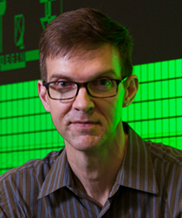Retrogame Archeology
Interactive media and games increasingly pervade and shape our society. In addition to their dominant roles in entertainment, video games play growing roles in education, arts, science and health. This seminar series brings together a diverse set of experts to provide interdisciplinary perspectives on these media regarding their history, technologies, scholarly research, industry, artistic value and potential future. As the speakers and title suggest, the series also provides a topical lens for the diverse aspects of our lives.
Join us every TUESDAY from January 5th until March 8th from 12pm-1pm in Lane Hall, Rodriguez Lecture Hall (Rm 2) at Stanford University.
Can’t make it to the talk, but have a question for John? Submit your question HERE and it will be asked. By submitting your question, you’re allowing mediaX to use and record your submission.
Also listed as one-unit course BIOE196. For more information contact Ingmar@stanford.edu
Never Miss An Event; Join Our Email Community
Presenter

John Aycock, Retrogame Archeology. Even the simplest old computer games may have required technical miracles to get running at all -- retrogame programmers were constrained by both hardware and software in ways that are unimaginable now. Retrogame archeology looks under the hood of old games to uncover the clever tricks that make them tick. Learn about what retrogame archeology is (and isn't) and how old games are studied today.
John Aycock is the Director of the Computational Media Design program at the University of Calgary, Canada, as well as an associate professor in the Department of Computer Science. His current research area is primarily computer security, with occasional forays into art, ethics, and programming languages. He is pleasantly surprised to learn that his misspent youth playing what are now retrogames is now applicable to game studies.